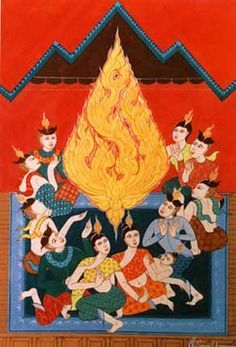Rector's Reflection: The Language of Love and Reconciliation, May 18, 2024
- Leslie Scoopmire

- May 18, 2024
- 3 min read

Beloved Members of St. Martin’s,
This Sunday is the Feast of Pentecost, ending the Easter season and beginning a long season known in the Church, unfortunately, as “ordinary time.” Yet the events we recall in our lives as Christians are anything but ordinary, and the readings we will hear this weekend confirm that.
Our passage from Acts this week describes what is often referred to as the launching and forming of the Church as a specific, separate community on the Day of Pentecost. To make the Church possible as the visible Body of Christ, the Holy Spirit came down upon the apostles and other disciples and gave them the gifts they would need to go to all nations and proclaim the Gospel. This was during the Jewish festival of Shavu’ot, which commemorates the giving of the Torah to Moses on Mt. Sinai as well as the gathering of the harvest of first fruits of the harvest, as commanded in Exodus 23:16 and 34:22 (see also Leviticus 23:15-21, Numbers 28:26-31, and Deuteronomy 16:9-10). This festival occurred seven full weeks plus one day after Passover. This celebration was called Pentecost in our Bibles because Pentecost means “50 Days” in Greek, and our New Testament was written in Greek before being translated into, for us, English.
In the reading from Acts 2:1-21, we are reminded of the power of words in the response of the disciples after the power of the Holy Spirit comes over them, giving them the gift of language. In a blink they are outside, in the streets, doing exactly what the disciples were told to do in our gospel reading—they are out in the world, testifying to the power of God as revealed in Christ to the people they encounter there. It’s probably the most excitement you and I have ever heard coming out of a church meeting. In a kind of reverse of the curse of the Tower of Babel story, now these disciples, many of them simple country folk, have just learned to speak other people’s language. I think that’s an important point for us too in the Church today: we are called to speak to people in their own languages first, rather than expect them to immediately understand the language of Christianity. Through the power of the Spirit, we are reminded that language is power, empowering us to carry the gospel of Christ throughout the farthest reaches of the world as disciples, evangelists, and teachers—as Christians who are the Church.
Language is powerful—just as the wind that is often a symbol for the Spirit is powerful. Wind may be collected in sail or turbine to create momentum or energy. Place a spark before it and a dry prairie or hillside, and you soon have a wildfire. Language can help span divides, soothe grief,-- and spark conflagrations too. When we speak the language of Christ, the language of God’s reconciling, redeeming love for all creation, we seek to quench the conflagrations that divide us with the power of faith and hope.
The languages that are spoken by the disciples on this day, that first Pentecost Day, begin in a conflagration and end in a conflagration—a wildfire with love at its heart and soul. As disciples, we are called to speak this new language of love and reconciliation—to proclaim God’s love, embody God’s love, and promote God’s love. Without exception.
In Christ,
Mother Leslie+